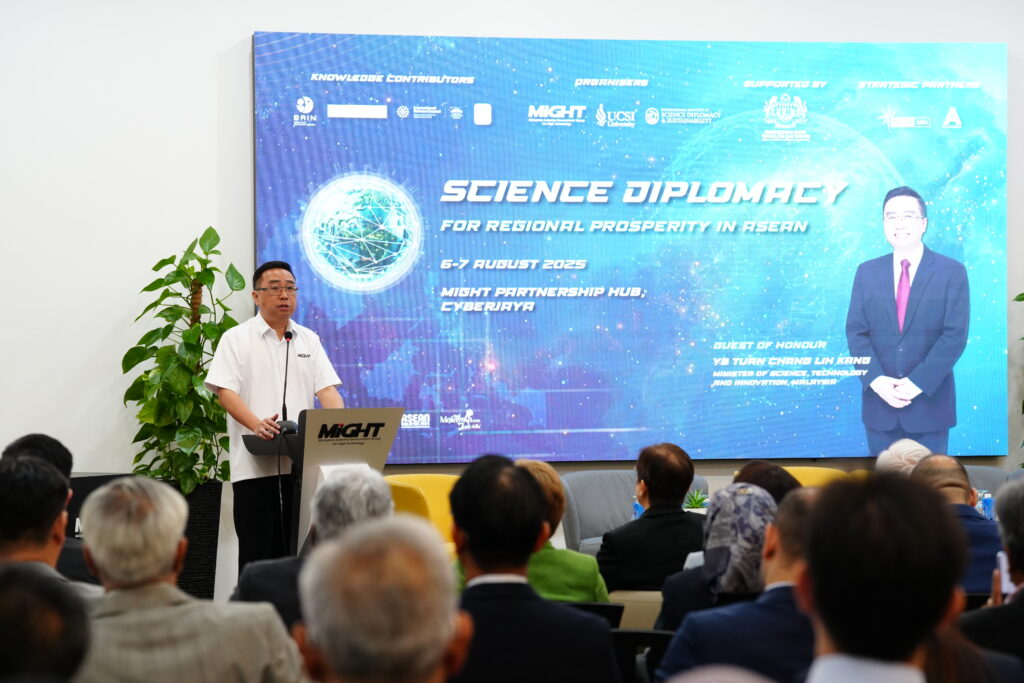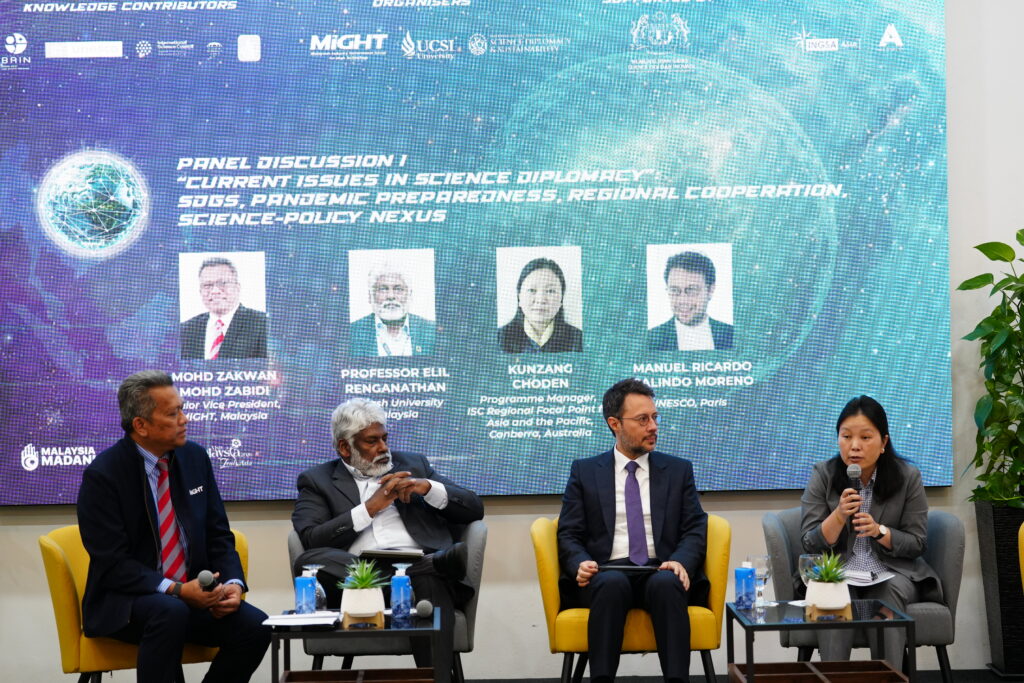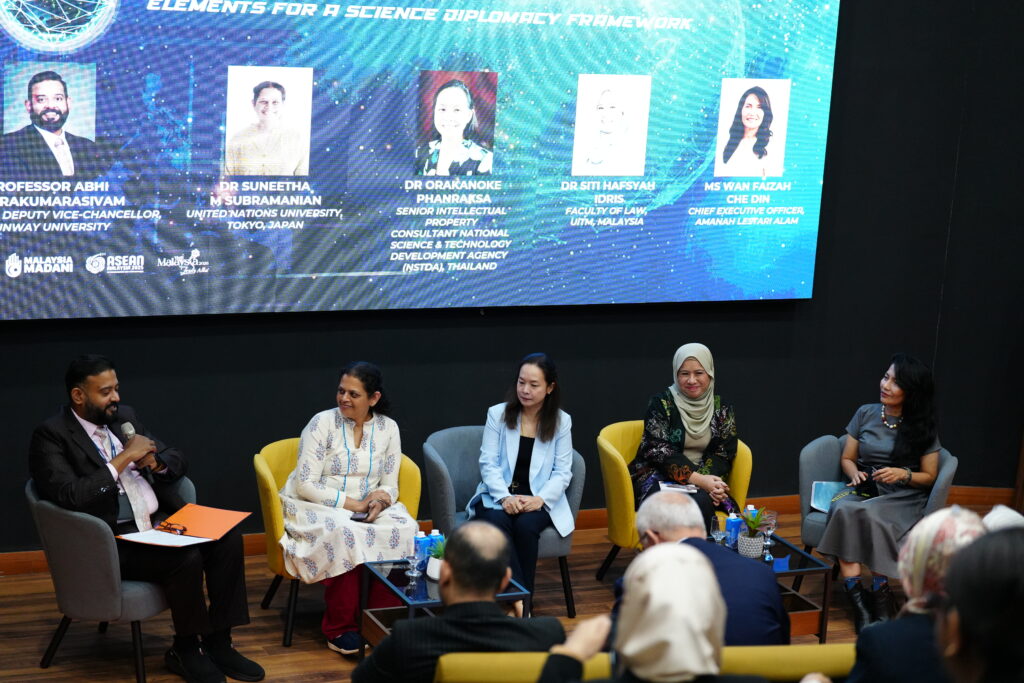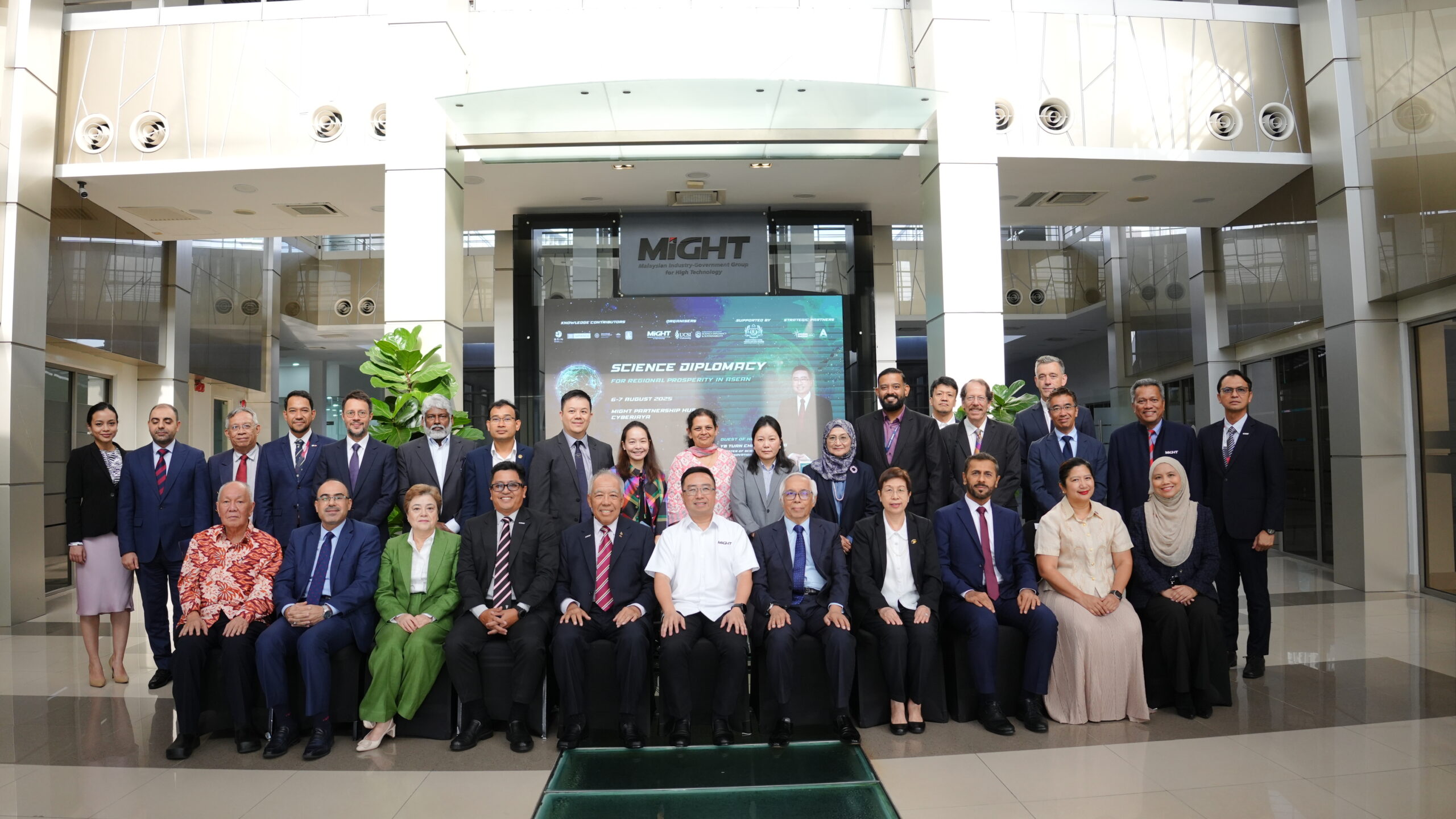INGSA-Asia Co-Hosts International Conference on Science Diplomacy for Regional Prosperity in ASEAN
Read the conference proceedings here and conference outcomes here.
INGSA-Asia was honoured to support the International Conference on Science Diplomacy for Regional Prosperity in ASEAN, held on 6–7 August 2025 at the MIGHT Partnership Hub in Cyberjaya, Malaysia. Jointly organised with the Malaysian Industry-Government Group for High Technology (MIGHT) and UCSI University’s International Institute of Science Diplomacy and Sustainability (UCSI-IISDS), and supported by the International Science Council Regional Focal Point for Asia and the Pacific (ISC RFP-AP), the conference convened over 80 participants comprising of diplomats, scientists, policy leaders, and youth from across ASEAN and beyond.
Day 1 opened with welcoming remarks from Professor Emeritus Tan Sri Dr. Zakri Abdul Hamid, Prof. Dr. Phang Siew Moi (UCSI), and MIGHT CEO Ts. Rushdi Abdul Rahim, followed by an address by Malaysia’s Minister of Science, Technology and Innovation, YB Chang Lih Kang who reaffirmed Malaysia’s commitment to advancing science diplomacy and urged participants to view the conference as the beginning of a sustained movement. Keynotes explored global initiatives and UNESCO’s science diplomacy strategies, while a dynamic first panel examined pandemic preparedness, the SDGs, and the science–policy nexus. Speakers highlighted the urgency of translating scientific knowledge into policy and strengthening capacity for both scientists and diplomats.

Photo courtesy of MIGHT Malaysia.
A highlight of Day 1 was the panel on Current Issues in Science Diplomacy, which featured Dr Kunzang Choden, Program Manager at ISC RFP-AP. Dr Kunzang introduced the International Science Council (ISC) and its Asia–Pacific Regional Focal Point, hosted by the Australian Academy of Science and supported by the Australian Government. She highlighted ISC’s role in convening scientific communities, ensuring that regional priorities are integrated into global scientific discourse. Observing gaps in the Global South, she noted the absence of formal institutional mechanisms linking ministries of science with ministries of foreign affairs, and the lack of regional forums for science diplomacy. Her remarks emphasized the importance of regional mechanisms to integrate evidence into policymaking.

Photo courtesy of MIGHT Malaysia.
Day 2 built on this momentum with keynotes on the post-2030 Sustainable Development Goals, European and Antarctic perspectives, and the emerging field of bio-diplomacy. Panel discussions tackled “common interests” such as the blue and space economies, water security, and sustainable digital development, and later explored training models for the next generation of science diplomats. Across all sessions, participants stressed the need for inclusive, anticipatory governance and stronger regional research networks.
On Day 2, Dr. Orakanoke Phanraksa, esteemed Steering Committee member of INGSA-Asia, contributed to a forward-looking session on Training for Whom, On What, and How?, moderated by Prof. Dr. Abhi Veerakumarasivam – former Chair of INGSA-Asia. She shared practical approaches to cultivating science diplomats, advocating early-career training, mentoring, and structured national advisory systems to ensure that ASEAN’s next generation can navigate both technical and diplomatic arenas effectively. She also examined the role of intellectual property (IP) policy in enabling equitable science diplomacy, and highlighted that IP should be approached not only as a protection mechanism but as a facilitator of cooperation.


Photos courtesy of MIGHT Malaysia.
Moving forward, participants outlined several practical steps to advance science diplomacy capacity in the region including establishment of working groups dedicated to capacity development and financial mechanisms to support sustained science diplomacy efforts, embedding foresight training within regional institutions, promoting cross-sector collaboration and leveraging forthcoming platforms such as the World Science Forum in Jakarta to strengthen regional partnerships and spotlight science diplomacy’s role in resilience and equity.
Beyond the formal sessions, the conference proved to be a valuable platform for networking, enabling participants to connect with subject-matter experts and foster meaningful connections among diplomats, academics, policymakers, scientists, and practitioners, creating opportunities for collaboration, knowledge sharing, and insights that will inform future science diplomacy initiatives across ASEAN.
The conference concluded with a presentation of a draft resolution document for review and endorsement by participants. Read the draft resolution here.


